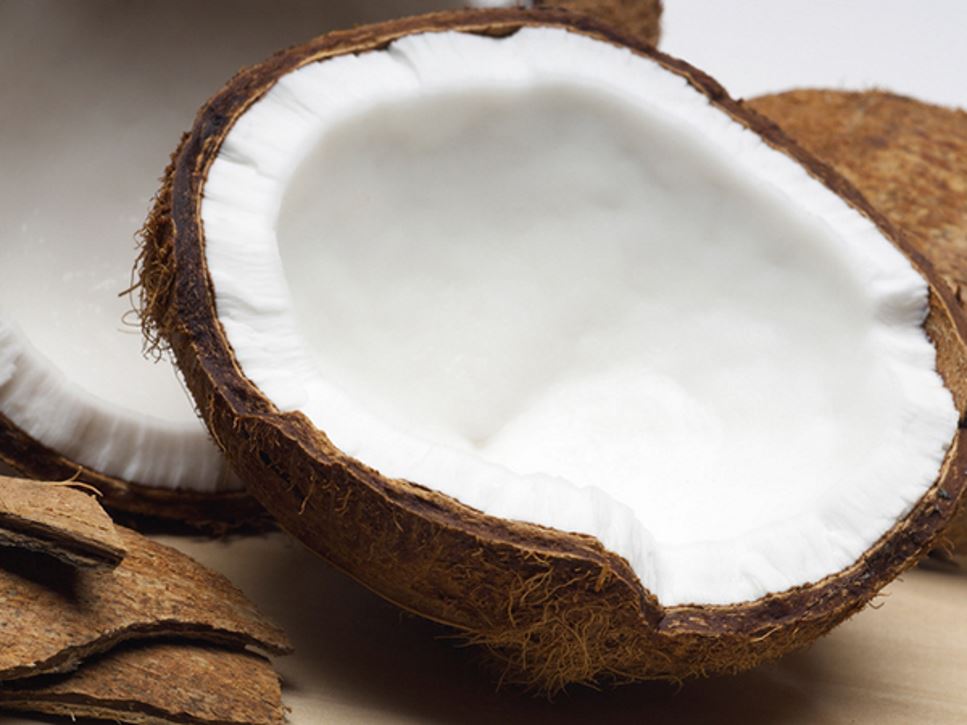If you've read about coconut water — the liquid from an immature (green) coconut — online or in the media, you'd think it was a miracle beverage that could cure you of everything from heart disease to obesity. Here are some popular claims about the beverage and a registered dietitian nutritionist’s perspective on them.
Myth or fact? Coconut water is an ideal post-exercise drink.
The verdict: Myth. You may see gym-goers guzzling coconut water on the treadmill because it contains electrolytes, which you lose when you sweat. But for the average light-to-moderate exerciser, "If you're consuming enough fluids and eating healthfully the rest of the day, having coconut water after a workout is not going to significantly benefit you any more than hydrating with water," says registered dietitian nutritionist Marjorie Nolan Cohn.
Unflavored coconut water is low in sugar and calories and is not the perfect sports drink. Sports drinks are meant to replace fluids, supply energy and replace sodium and potassium lost through perspiration.
Myth or fact? Coconut water hydrates you better than H2O.
The verdict: Myth. There is no scientific proof that coconut water is more hydrating than regular water, says Nolan Cohn. "There also is a great amount of variability with coconut water electrolyte, vitamin, mineral and sugar content from brand to brand, so you never really know what you are getting," she says.
Myth or fact? Coconut water has anti-aging properties.
The verdict: Myth. Being well-hydrated does help you look and feel better, says Nolan Cohn, but water works just as well for this. And, as to the claim that coconut water "significantly increases plant cell proliferation without increasing the number of undesirable mutations," in other words, it protects your cells — there's been no research to show that this plant-specific action makes any difference in humans.
Myth or fact? Coconut water is a healthier choice than soft drinks.
The verdict: Fact. Coconut water generally has fewer calories and less added sugar than soft drinks. However, labels can be deceiving. "Be sure to check the calories and sugar content per serving of your coconut water," she says. "Often, the bottle you buy contains two or more servings which means you’re doubling the calories."
Myth or fact? Coconut water helps prevent stroke and heart attack.
The verdict: Myth. You may have seen coconut water touted as a heart-healthy beverage. The potassium in coconut water helps counteract the blood pressure-boosting effects of sodium, so, in theory, drinking coconut water might help prevent heart disease. Potassium is an important nutrient, Nolan Cohn points out, but potassium from fruits, vegetables and low-fat or fat-free dairy offers additional vitamins, minerals, antioxidants and phytochemicals that promote a healthy body. "It's important to make sure your primary source of dietary potassium is from a variety of foods, and not just coconut water."
Myth or fact? Coconut water speeds your metabolism.
The verdict: Myth. When we're dehydrated, our metabolism slows down, says Nolan Cohn, so anything you drink will help keep your metabolism speeding along. And anything you eat or drink will give a temporary boost to your metabolism because your body has to digest the food. "Increasing a person’s metabolism is complicated and requires many different nutrition and lifestyle variables such as sleep, overall hydration, meal timing, exercise and food choices," she says. "Any one food or nutrient will not increase metabolic rate without the support of a healthy lifestyle."
References
Find a Nutrition Expert
Looking for credible nutrition information and recommendations? The Academy of Nutrition and Dietetics' network of credentialed food and nutrition practitioners are ready to help!

